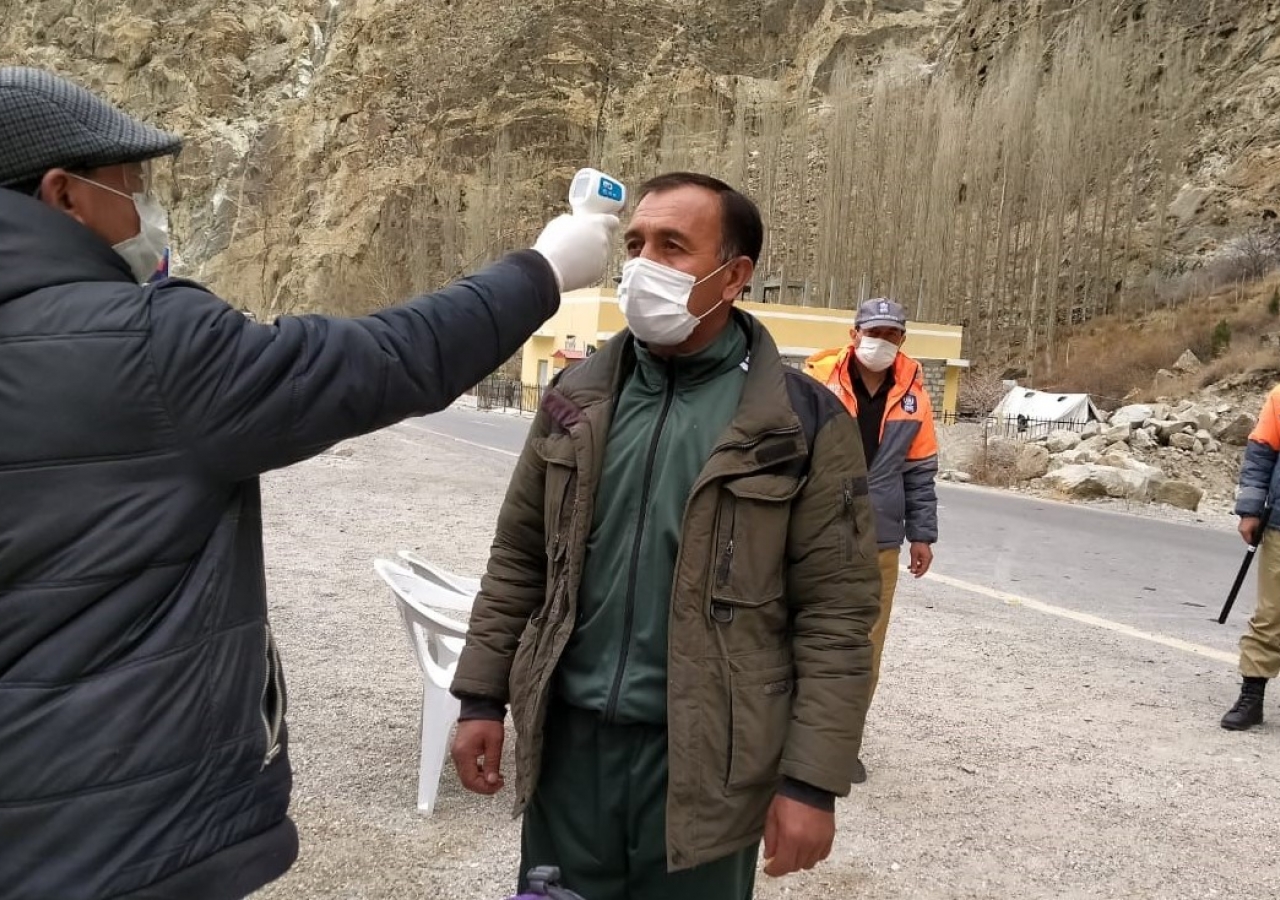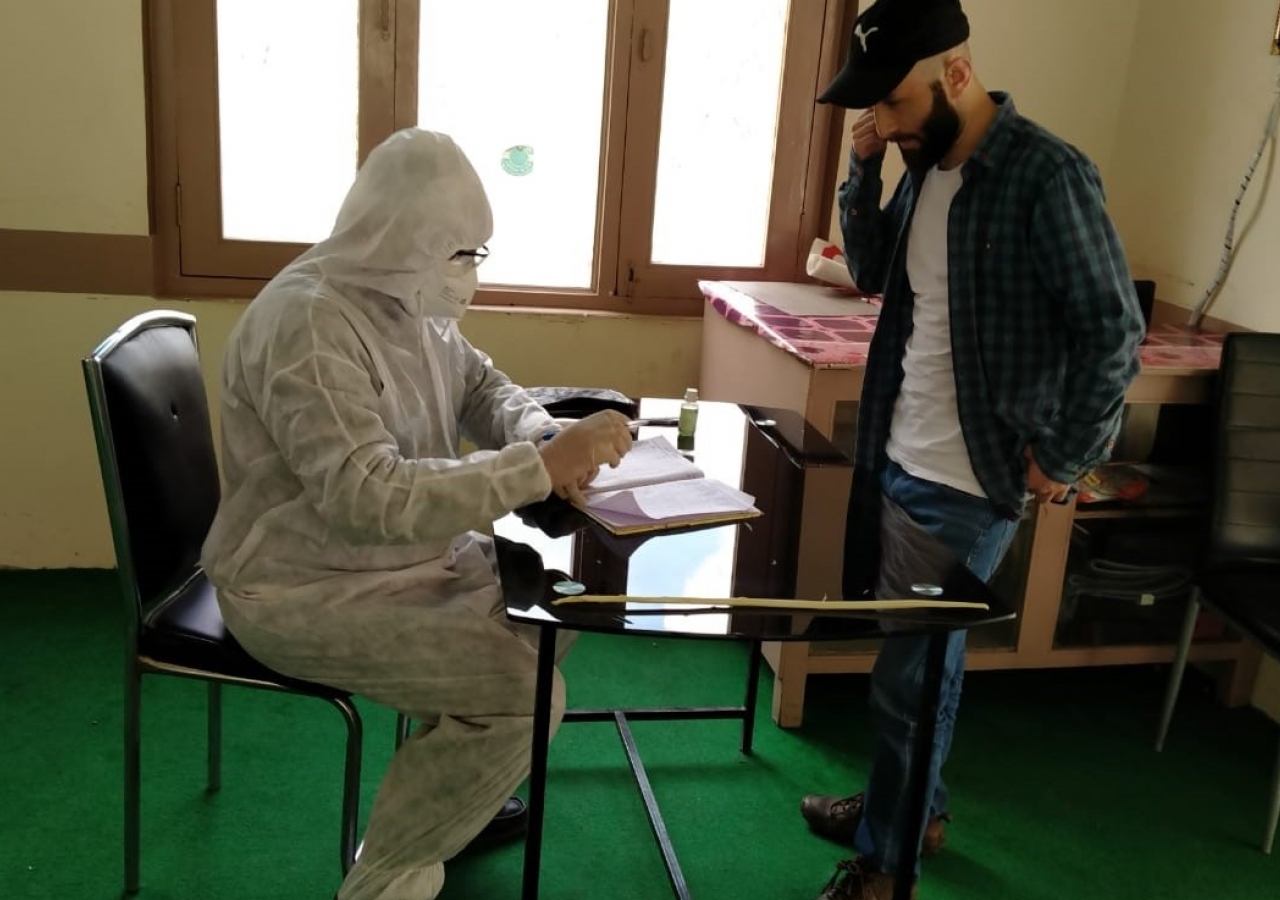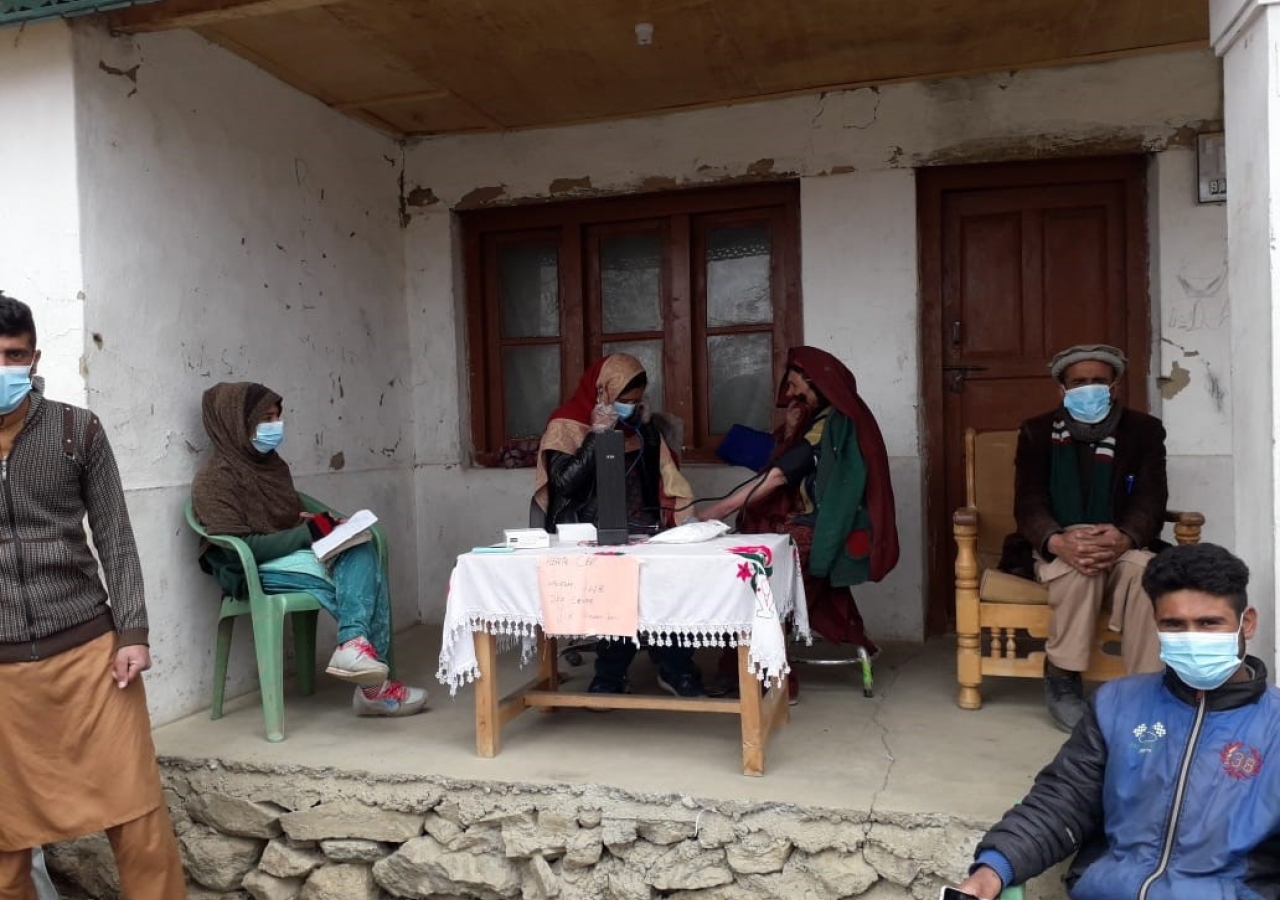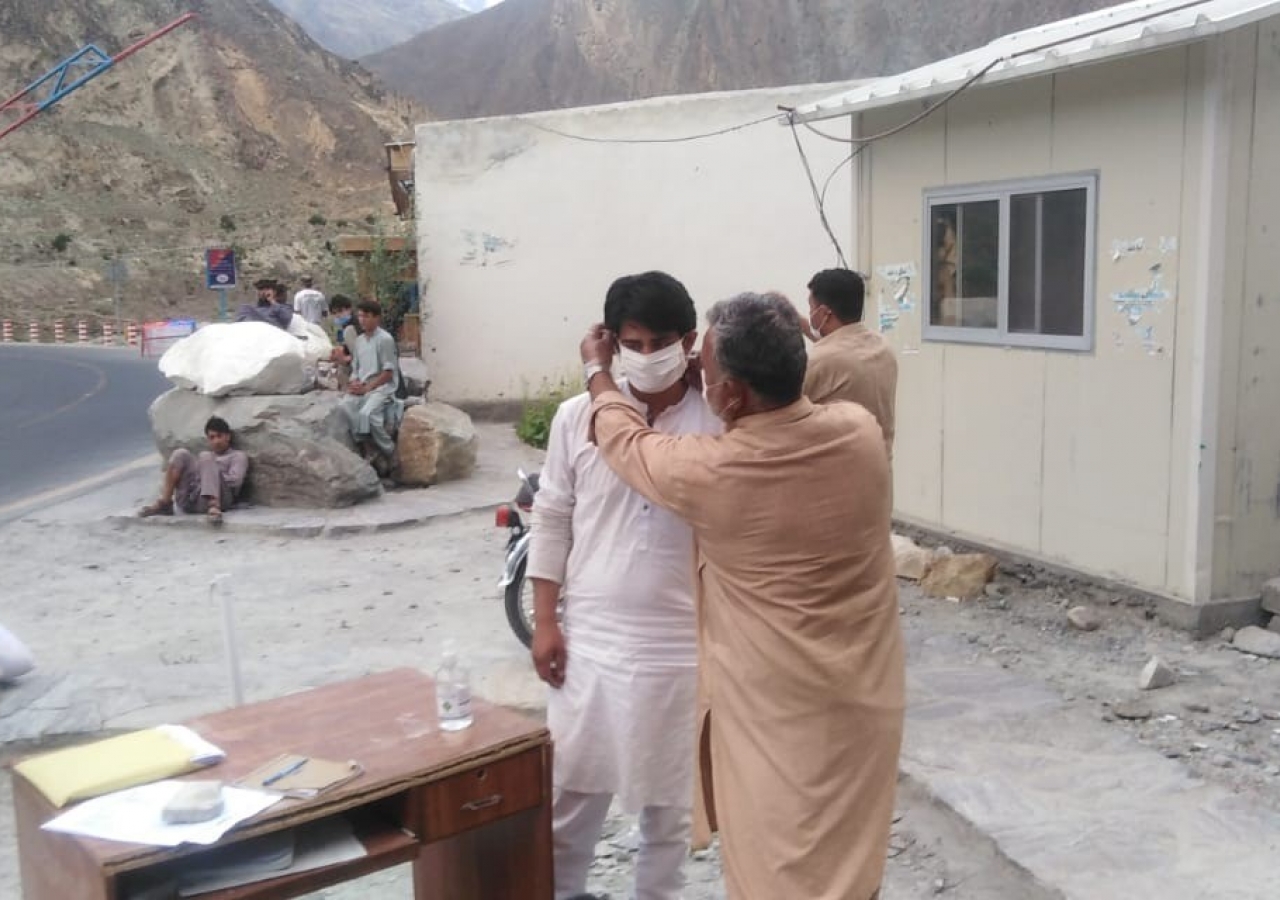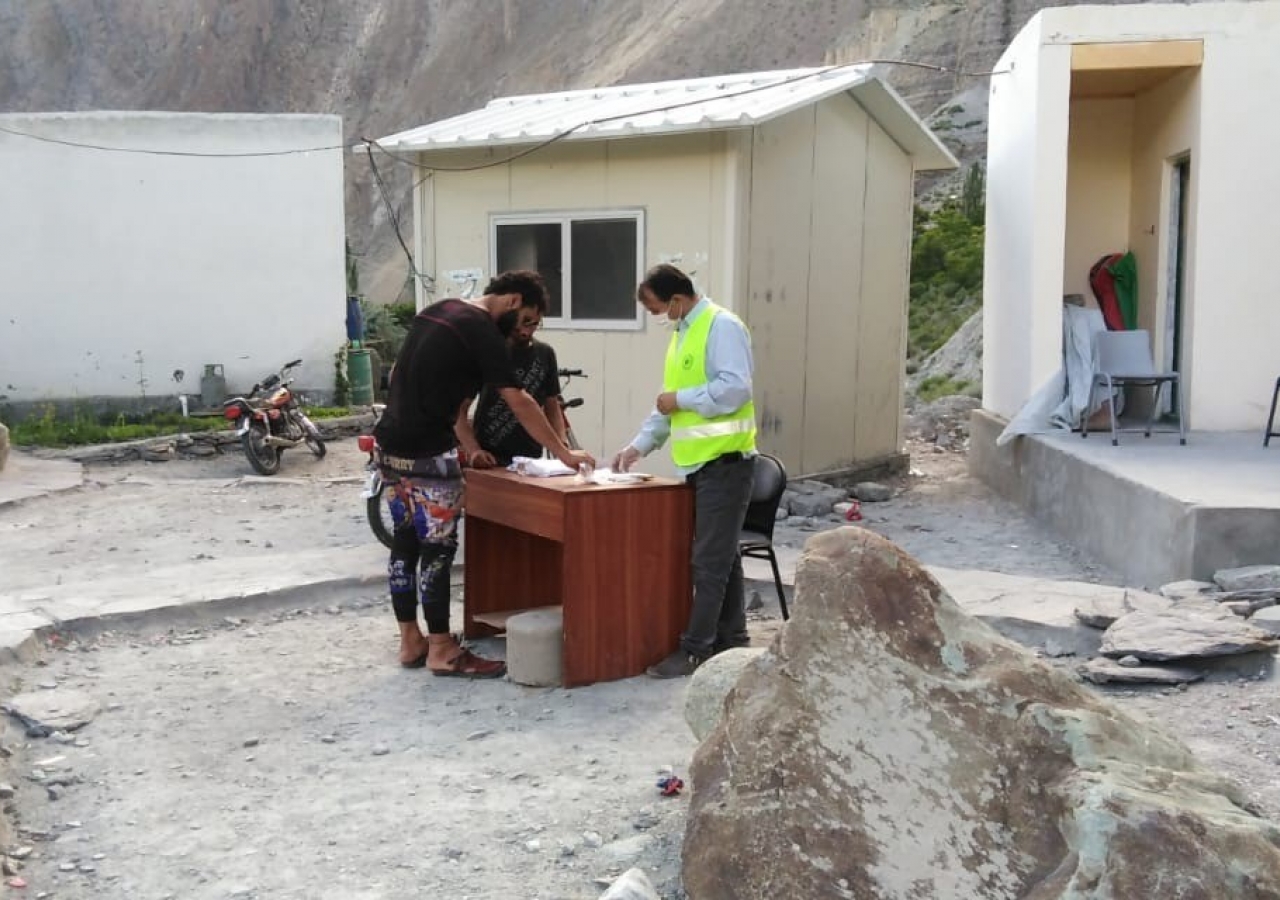Over 300 dedicated TKN volunteers are also valiantly playing their part in helping to deal with this massive public health emergency. From making facemasks and data surveillance to dispelling myths and false information about this virus, their multi-disciplinary efforts and unknown sacrifices have curbed the virus from spreading in areas where they have been serving.
The short- and long-term actions of TKN volunteers include translating awareness messages into local languages, mapping relevant healthcare facilities and medical supplies, supporting people in lockdown, monitoring recovered patients and helping to mitigate the economic fallout.
“Frontline workers do not have the privilege of remaining in their homes to shield themselves from the virus. It is a harrowing decision to meet your children when you know you are exposed to the virus every day,” said TKN volunteer Abdul Majeed. Majeed, who screens frequent visitors to Gojal (a valley in Northern Pakistan), mentioned the difficult working conditions and lack of technical expertise in remote areas such as his. TKN volunteers on his team also explain to the local population the importance of self-isolating or quarantine—a gargantuan task in itself. Despite the challenges, Majeed and his team continue to provide succour to those in need.
“It is an axiom that the virus is indiscriminatory; this is not an inconvenience affecting one stratum of society. These are unprecedented times and the economic crisis has indeed taken a larger toll on some. We need to look out for each other,” Majeed added.
Patients are understandably anxious about their own health and the risks posed to their loved ones. This is exacerbated by concerns that the virus spread may worsen. With the mental health of many in serious jeopardy, TKN volunteers have not only reached out to families but also launched several helplines catering to patients experiencing any illness. From emergency arrivals to critical care, rapid response teams are meticulously involved in their recoveries and rehabilitation.
Simultaneously, tele-health services are being run to ensure that the Jamat has access to medical personnel in these crucial times. Healthcare professionals, operating under extreme uncertainty, also understandably experience trauma.
“I look around myself and I can sense the chaos. We are worried about not having sufficient PPEs to protect ourselves. We agonise over the prospect of running out of ventilators and having to withhold care from the dying. It is not only COVID-19 but also cases of anxiety, depression, burnout and other mental health issues within our healthcare community. This pandemic is not limited to the virus only; its consequences are multifaceted,” said Zumri Nazir, who works as a nurse at a local hospital in Gakuch, Gilgit-Baltistan.
As frontline workers around Pakistan attempt to flatten the curve of COVID-19 cases, others appear to be leaning towards technology for support. Misinformation and a lack of knowledge during crises can fuel paranoia, stigma and trepidation, and result in an absence of precautionary measures. Virtual activities and online awareness sessions about the coronavirus and its unprecedented challenges are often held to educate and support members of the Jamat, within the safety of their own homes. While COVID-19 has wreaked havoc in our lives, it has also reminded us of the indomitable spirit of our Jamat and the shared values and ethics we uphold.
The inspiring heroism, dedication and perseverance displayed by health care professionals, frontline workers and our volunteers give the Jamat a degree of reassurance that we will overcome this virus. The pandemic may end in a year or two, but we will always remember who led the battle in helping to overcome this adversity – an important reminder that not all super-heroes wear capes.

